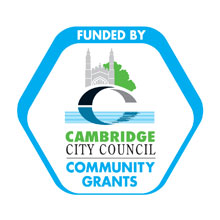How to relax
One of your New Year resolutions may well have been to become less stressed or to relax more.
It’s a great resolution but the question is, how do we go about it? It is all very well saying ‘relax’ but when you are tense, anxious or completely stressed out, there is no quick fix.
The first thing to consider is just what it means to ‘relax’.
When we think of relaxing, we usually imagine gentle, calm activities with no tension or anxiety. Relaxing however is actually the pathway that gets you to that state, not the state itself.
Which begs the question, how do you get to that state? Think about it. If you are tense and angry, then you can’t flick a switch to relax, you need to go through a process that gradually eases the tension, calms the mind, clears the adrenaline and slows the breathing. And that process isn’t necessarily achieved through calm and gentle actions.
Which means that sometimes the process of relaxing is aggressive and powerful.
Let’s look at the science
Science tells us that when you stimulate the fight-flight-or-freeze response, you begin a hormonal stress-response cycle that needs to be completed in order to return to a baseline state of relaxation. This is thanks to our evolutionary ability to handle and survive dangerous threats in our environment, and then switch back into healing and repairing mode only once we’ve escaped the danger.
But the problem is that our physiological stress response is no longer appropriate for our modern environments. The stress you face today is more likely to be an unreasonable deadline; a traffic jam or a stream of scamming telephone calls. No longer are we escaping dangerous predators or hunting for our food. In fact, many of our stresses do not even have physical manifestations, they are inside our own heads. Think: guilt, comparison, perfectionism, and negative body image.
Because much of our stress is internal, it is difficult to complete the stress response cycle – we just keep piling stress on stress. There is no point where we can retreat, lick our wounds and complete the healing process.
Follow the animals
If we take our lead from the animal kingdom, after a fight, flight or freeze situation, the animal will twitch, shake or run around before taking a recovery nap. If they have been hurt, they will retreat and lick their wounds. Humans are wired to have a similar reaction in order to complete the stress cycle but, with the stressors we encounter today, we are completely cut off from our bodies’ wisdom about how to finish our stress cycles.
What all this means is that sometimes the most “relaxing” thing you can do for yourself is to expend all that extra energy.
Like the animal who twitches and shakes after a stressful incident, we also need to get rid of excess energy. When you trigger a stress response for any reason, your body goes through changes. It ramps up your available energy by dumping adrenaline into your blood, and preparing your cardiovascular system to run or attack. Your body then has all this extra energy, which has to go somewhere.
Letting off steam to relax
For animals that means twitching and trembling. For you, it might mean crying, shouting and kicking out, dashing off an angry email. But, these are not always productive means of ‘letting off steam’.
For other people, the knowledge that they need to relax when they feel stressed leads them to jump from an angry, pent-up state straight into a state of deep relaxation – via a massage or meditation. This doesn’t always work. You can’t go from having excess energy (a.k.a. anxiety/stress) to feeling calm and peaceful without letting the energy out first. The body needs to go through a complete stress response cycle to achieve a relaxed state.
As fitness professionals, we feel that exercise in one form or another, is the perfect antidote to stress and can offer a real means to relax. A tough workout, taking a boxing class, going for a run, doing a circuit – all ways of burning off that excess, angry energy and completing the stress cycle.














